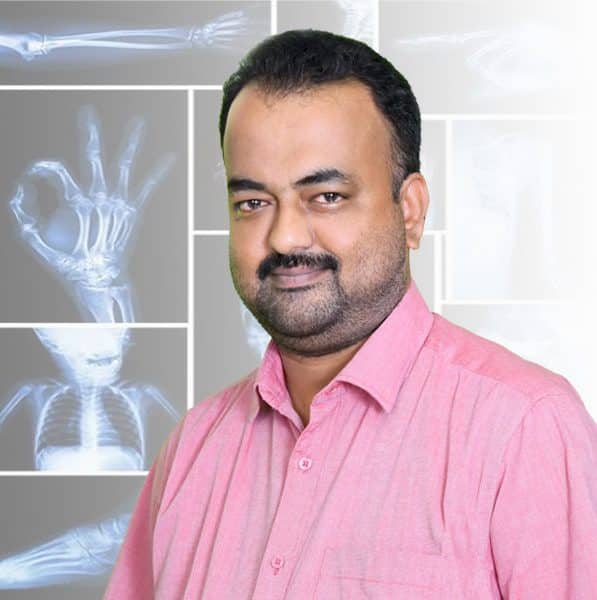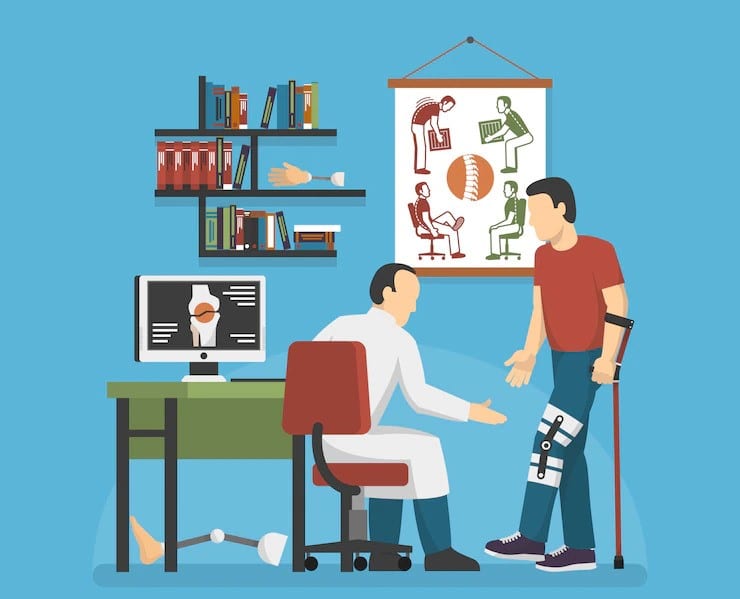Knee replacement surgery is a major treatment for the knees that significantly improves mobility and eases knee pain. Proper recovery and rehabilitation help you to return to everyday activities much faster than you anticipate.
But, knee replacement surgery holds certain limitations for a few weeks after the treatment. Those who undergo knee replacement surgery should be cautious while doing daily activities. Understanding knee precautions can reduce the chances of injury and fasten the healing process.
Recovery in the hospital
The recovery begins from the hospital ICU post-knee replacement surgery. You will be under observation for a few hours after surgery before you are shifted to a recovery room. After the surgery, you will be encouraged to walk on the next day of the procedure with the help of crutches or any support.
Exercises after knee replacement surgery
Exercises play a significant role in strengthening the muscles surrounding the knee joint. But, some movements should be done with the doctor’s suggestion as it might cause harm to the knee joint. A physiotherapist will teach you specific leg exercises while you are on the hospital bed. Leg exercises will prevent the formation of blood clots after the surgery.
Some of the post-operative knee exercises to restore strength and mobility of the knee are:
- Straight leg raises
- Knee bends
- Ankle pumps
- Knee bending exercises
- Short arcs quads
- Quad squeezes
- Heel raises
- Sitting knee extension
Stay active for a better quality of life
Within 2-3 days of the knee replacement surgery, the physiotherapist will encourage you to walk for short distances with the support of a walker, canes, or crutches. You will be able to do regular activities with minimal assistance.
To enable faster recovery from surgery:
- Adhere to an active lifestyle
- Exercise regularly (physiotherapy to regain strength in the joints)
- Maintain a healthy weight avoid excessive stress in knee joints
- Take necessary medications and supplements
- Eat a healthy diet that promotes the fastest recovery
Recovery at Home
During your recovery period at home, you are most likely to limit your movement and are usually restricted to one place. Make yourself comfortable in a place and keep all the necessary things at your reach.
Some of the things to keep handy while recovering are a water bottle, medicines, mobile phone, eyeglasses, tissues/napkins, and other needy things that you commonly need.
During the initial days of recovery, it might be difficult to manage everyday activities all alone. Take the help of a family member, friend, or a known person when you have to drive a vehicle to reach a place. Do not stress your knee until you are completely recovered from the surgery.
Do not hesitate to ask for help during in-house recovery. Take help from a family member or anyone around when you need assistance to change your bandage, cook meals, while going for a bath, getting dressed, and do any other tasks where you would need help from another person.
Activities to avoid after knee replacement surgery
Prolonged sitting: Sitting for longer periods after a knee replacement surgery can develop blood clots. Sitting for a prolonged time can develop swelling in the lower leg.
Activities that raise the risk of falling: Immediately after knee replacement, reduced range of motion and loss of strength in the knees can increase the risk of falling.
To reduce the risk of falling,
- Sit down while wearing your socks, pants, etc
- Keep the floor clean and avoid slippery mats
- Use a hand railing while climbing and getting down the stairs
- Install lights at places where you walk during the nighttime
- Do not place any objects on the floor to avoid the risk of falling
- Be cautious while resuming everyday activities
Avoid pressure on the knees: Doctors encourage the use of crutches, walkers, or any supportive devices to avoid pressure on the weight-bearing knee joints. It is ideal to use assistive devices while moving around, especially during the initial days after the surgery.
Avoid contact sports: It is suggestible to avoid high impact or contact sports while recovering post-knee replacement surgery. Some of the contact sports to avoid after the surgery are basketball, hockey, football, soccer, and skiing.
Avoid kneeling: Most people experience difficulty kneeling down after knee replacement surgery. Although kneeling down is not harmful after a total knee replacement surgery, it is better to avoid it as it might be uncomfortable.
The success story of Mr. Malikayat Singh, who underwent knee replacement surgery atAyu Health.
Physiotherapists at Ayu Health teach you highly effective knee exercises that allow faster recovery from knee replacement surgery.
Ayu Health offers all-inclusive fixed-price packages for knee replacement surgery. To know more, call us on +91 – 6366 100 800. book an appointment or to know more.
Our Hospital Locations
Orthopaedics Surgery Hospitals in Chandigarh | Orthopaedics Surgery Hospitals in Bangalore | Orthopaedics Surgery Hospitals in Jaipur | Orthopaedics Surgery Hospitals in NCR | Orthopaedics Surgery Hospitals in Hyderabad
Our Doctors
Orthopaedics Surgery Doctors in Chandigarh | Orthopaedics Surgery Doctors in Bangalore | Orthopaedics Surgery Doctors in Jaipur | Orthopaedics Surgery Doctors in NCR | Orthopaedics Surgery Doctors in Hyderabad
About the Author

Dr. Manjunath Kumar K.
Dr. Manjunath Kumar K. is a renowned Orthopaedics currently practicing at Ayu Health, Bangalore.
He is an orthopedic surgeon currently practicing at Mallige Medical Center, Bangalore. A highly qualified doctor, he has completed his MBBS from Bangalore Medical College and MS in Orthopedics from KIMS, Hubli. further higher surgical training was from England, Birmingham. His post-graduate degree from the royal college of Edinburgh and the Royal College of Ireland. He also has vast experience in treating Unilateral Total Knee Replacement, Bilateral Total, Knee Replacement, Total Hip Replacement Surgery, and ACL Tear




